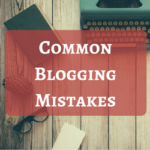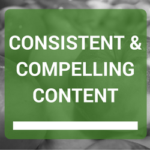Social media still remains one of the best sources of driving traffic to your website and blog. As a matter of fact, it is the major distribution channel of most content marketing strategies.
Some of the ways Social Media drives traffic are:
- Boosted, Promoted or Sponsored Posts
- Participating in groups to show thought leadership and to answer questions
- Etc
That being said; not every social media platform is ideal for real estate agents. If you try to be on ALL the social platforms out there, you will be spreading yourself too thin.
This article talks about 5 of the most popular social media platforms that have helped several real estate agents achieve success. It talks about their pros and cons and what to expect from each.
Facebook still remains one of the most popular and highly populated social networks in the world. Research shows that sharing pictures with links boosts your success substantially.
Pros:
- Provides a nice mix of visuals and text; so you can really write out what makes your listings special while also giving enough space to use photos.
- The most common age group is 25 to 34, at 29.7% of users; in other word Millennials. Read our <article on what every real agent should know about Millennials.>
- Offers one of the most highly targeted advertising options compared to other social networks.
Cons:
- There is a lot of clutter on peoples news feed which makes it hard for your posts to stand out to them.
- Organic reach and growth is slow unless you pay to boost your posts
Twitter is a fast-paced network designed for instant communication. Twitter is literally a messaging service with just 140 characters.
Pro:
- Twitters’ search function remains one of its strongest points. You can use it to tap into conversations about your hometown, neighborhood or city and join those streams with relevant, informative responses.
Cons:
- For you to be successful on Twitter, you need to be active. You must post at least 10 times a day to make any impact.
LinkedIn is the world’s largest professional networking social media platform.
Pros:
- Endorsements and referrals are very easy using LinkedIn.
- LinkedIn’s publishing platform is a great place to drive thought leadership that will establish you as a real estate expert.
Cons:
- LinkedIn is not as dynamic as Facebook or Twitter.
- LinkedIn is best if you’re trying to attract investors
Instagram is a picture sharing platform that is owned by Facebook.
Pros:
- Instagram allows real estate agents share images of their listings easily and with better filters etc to make the image look superb.
- You can also geo-tag your images, so they show up on the Instagram Photo Map.
- Instagram allows you to include short video clips to your updates; giving people a better glimpse of your listing.
Cons:
- Unlike other social media platforms, there are no share buttons.
- You can’t add links to posts
- The only metrics you can measure are comments and people who like your images.
As stated before, social media is still the most effective way of driving traffic to your real estate website or blog. All of these platforms are good, the question is; which do you want to focus on.
If you don’t have the time, you should definitely be on all these platforms, otherwise, weigh the cons and pros and choose whichever you feel most comfortable with for now.




